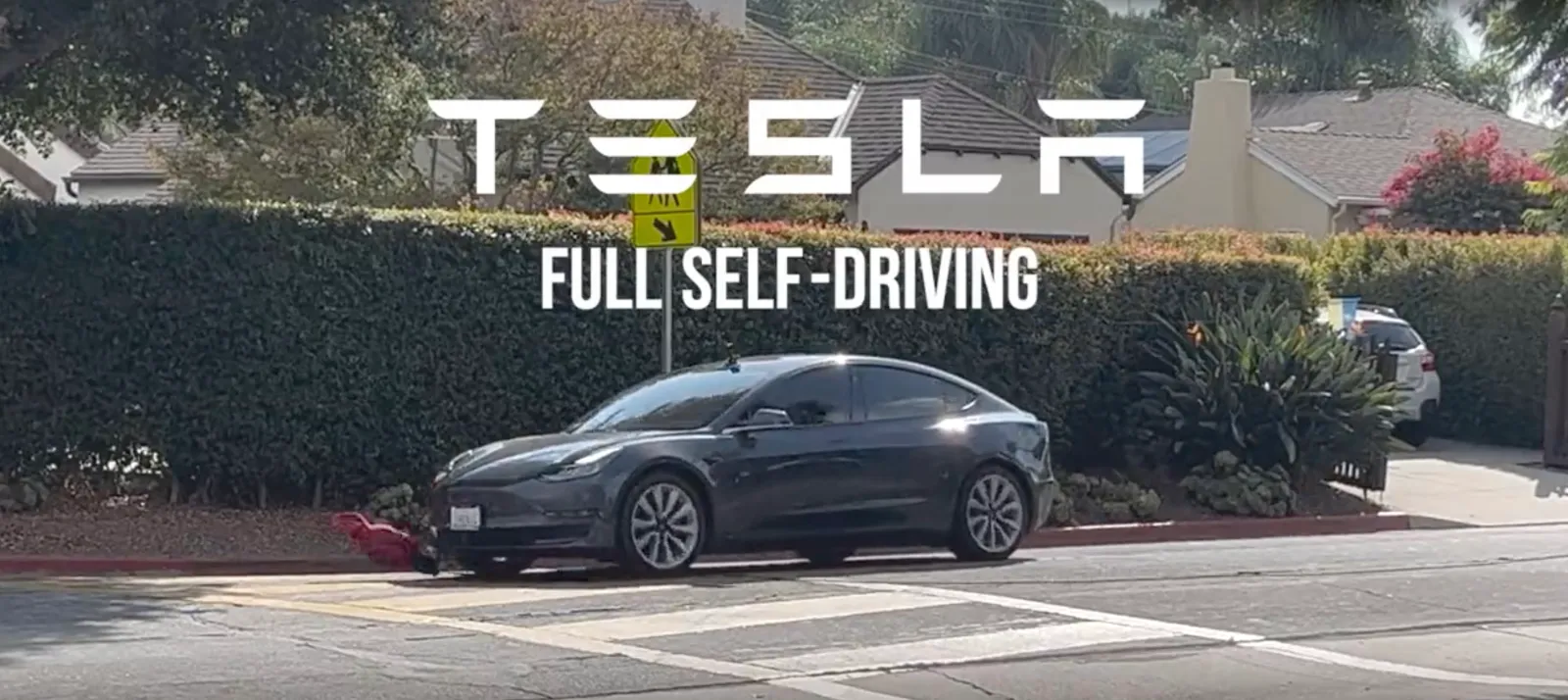
A hacker has revealed that Tesla has launched a new data gathering around the site where it plans to unveil its Robotaxi next month.
It is raising questions about what the automaker is going to demonstrate at the event.
While most other self-driving ride services, like Waymo and Cruise, focus on making their system work in geo-fenced city areas using mapping, Tesla has always claimed to differentiate itself by having a broader approach that involves developing a self-driving system closer to how human drives – meaning that it could virtually drive wherever without pre-mapping the area or even having an internet connection.
Tesla aims to develop a system that can drive like humans, replacing eyes and brains with cameras and neural nets.
The automaker is not quite there despite its CEO, Elon Musk, claiming that Tesla would achieve this by the end of every year since 2018.
Tesla first unveiled its plans for a self-driving system with a video demonstration back in 2016.
The video has since become really controversial because it was produced by using a predetermined route that was 3D mapped ahead of time. Tesla also ran that route several times to optimize the performance.
In testimony as part of a lawsuit over this situation, Ashok Elluswamy, director of Autopilot software at Tesla, confirmed that it wasn’t representative of the capabilities of Tesla’s system at the time:
“The intent of the video was not to accurately portray what was available for customers in 2016. It was to portray what was possible to build into the system.”
This led many people to claim that the video was “faked” or “staged.”
Eight years later, Tesla is now preparing to hold a similar launch, but this time is for its “Robotaxi”, a dedicated self-driving vehicle platform for autonomous ridesharing.
We recently learned that Tesla plans to hold the event next month at the Warner Bros studio in Los Angeles.
Green, a well-known Tesla hacker who often reveals information about Tesla by going through the source code of its software updates, has now revealed that Tesla has launched new data collection campaign called “WB Studio” to gather extra data in the area where it plans to unveil the Robotaxi next month:
Tesla uses its customer fleet to gather road and driving data, which it uses to improve its neural nets that power its self-driving system.
However, some believe this is Tesla pulling the same trick as with the 2016 self-driving video.
Recent reports have amplified this suspicion. Tesla insiders recently reported that Tesla focused its data annotation resources on routes taken by Elon Musk and other ‘VIPs’, who were often Tesla influencers who posted FSD videos.
Electrek’s Take
Knowing Tesla, the Robotaxi unveiling will not be as simple as showing a new vehicle designed to operate a robotaxi service. It will likely involve some demonstration of the vehicle’s capability.
I think it’s fair to have some concerns about Tesla showing a level of capacity, like they did in 2016, that the vehicle is still unable to achieve in its customer version 8 years later.
I’m not saying that the same thing is going to happen with the Robotaxi, but a robotaxi vehicle is not really useful if you haven’t solved self-driving yet. Tesla will need to show progress on that front and right now, the data from the FSD program is not showing a lot of progress.
The other option is for Tesla to launch a geo-fenced robotaxi service like Waymo. That could explain the more specific data collection, but it would also be Tesla backing away from what makes its self-driving system different from the competition.
FTC: We use income earning auto affiliate links. More.